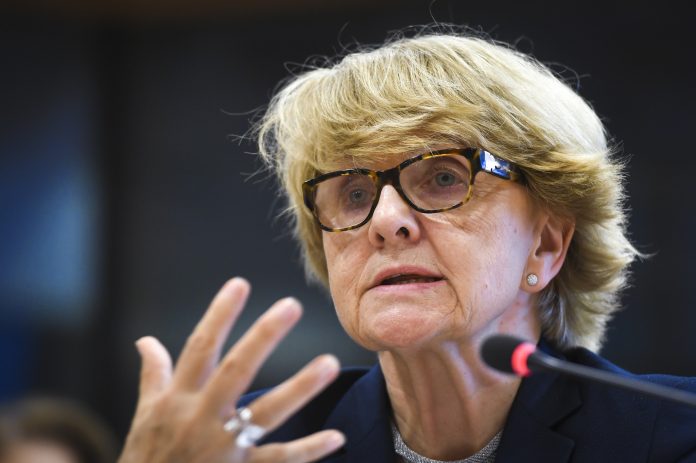The EPP Group in the European Parliament wants to have an adequate regime for the recognition of third-country clearing houses by the Brexit date, but does not want to require British-based clearing houses to relocate after Brexit. The EPP Group wants more regulatory power over non-EU clearing houses if they clear transactions in Euros.
“If you want to do business in Euros you have to accept that there will be a referee from the European Union, a real referee who has the power to send you off the pitch”, said Danuta Hübner MEP, the European Parliament’s negotiator for the new EU rules for clearing houses in and outside the EU. Clearing houses are financial institutions which facilitate trading done on derivatives and equities markets. Their involvement is mandatory for the most systemically significant transactions. The purpose is to reduce the risk of transactions.
“It was necessary to amend the law on European Market Infrastructures in view of the growing role of clearing houses as crucial intermediaries in our financial ecosystem. In recent years, we witnessed a huge expansion of clearing businesses and an increased risk associated with potential failure of clearing houses. That is why we need good regulation and supervision at EU and international levels”, explained Hübner.
The new law allows for the possibility of the European Commission prohibiting the recognition of a non-EU clearing house by EU banks. “I want more clarity and certainty on when the referee should send a non-EU clearing house off the pitch. It is not a question of location. It is not a question of ‘last resort’ or ‘very last resort’, but of proportionate rules and evidence-based decisions. I don’t want this to be decided either arbitrarily or for political reasons”, Hübner added.
The European Parliament adopted Hübner’s changes on Thursday to the law the European Commission proposed in June 2017. Currently, more than 90% of the most important derivatives transactions in Euros are cleared by British-based clearing houses, which, after Brexit, will be outside the EU.
“Denying a non-EU clearing house recognition in the EU should be a credible option. It should remain in the legislative text as an insurance mechanism in case things go wrong and supervisory cooperation does not work”, Hübner stressed.
“Increased powers for the EU’s financial market watchdog, ESMA, over systemically significant non-EU clearing houses does not mean that we are taking any powers away from third country regulators in their own country. We do not regulate third country markets, but aim at having strong cooperation with third countries”, Hübner concluded.

